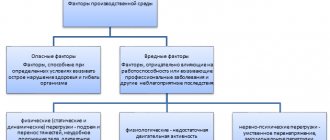Dear readers! Our articles talk about typical ways to resolve legal issues, but each case is unique.
If you want to find out how to solve your particular problem, please use the online consultant form on the right or call ext. 738. It's fast and free!
People are interested in how a municipal employee is dismissed at his own request. Usually a person decides to leave work of his own free will, and the employer is ready to meet him halfway, then the employment contract is terminated by agreement of the parties. But a completely different situation arises when a municipal employee is dismissed at his own request.
Who are municipal employees?
We find the definition in Article 10 of Federal Law No. 25-FZ of March 2, 2007: this is the name given to an employee who holds a municipal position in a local government body.
Work in such a position is regulated by local regulations, and remuneration for work is paid to him from the local budget. It is impossible to identify civil servants who work in federal government bodies and government bodies of constituent entities of the Russian Federation and local employees - these are two separate systems. The municipal service is not a subtype of the state civil service and is regulated by special legislative acts.
How is the dismissal of municipal employees regulated?
The main law regulating the general rules for entering into labor relations and dismissing employees is the Labor Code of the Russian Federation. Chapter 13 is devoted to dismissal issues.
A special law that establishes features applicable only to local employees is the Federal Law of March 2, 2007 No. 25-FZ “On Municipal Service in the Russian Federation.” Article 19 of this law contains special conditions for the release of local employees from positions. They apply only to this category of workers.
Reasons for dismissal of municipal employees
A citizen is dismissed from local service on the general grounds established by the Labor Code of the Russian Federation, and special grounds for dismissal of a municipal employee are applied to him. The general grounds are collected in the table:
| Article of the Labor Code of the Russian Federation | Base | Explanation |
| Art. 78 Labor Code of the Russian Federation | Agreement of the parties | The employment contract can be terminated at any time if there is the will of both the employee and the employer. |
| Art. 79 Labor Code of the Russian Federation | Expiration of the contract | As a general rule, an employment contract is open-ended, but in Art. 59 of the Labor Code of the Russian Federation establishes a limited number of cases when an agreement is concluded for a certain period, for example, during the absence of the main employee. Expiration of the contract term leads to the dismissal of the employee |
| Art. 80 Labor Code of the Russian Federation | At the initiative of the employee | The decision to terminate the employment relationship is made by the employee himself, for which he submits a corresponding application |
| Art. 71 and 81 Labor Code of the Russian Federation | At the initiative of the employer | Dismissal at the initiative of the employer must be justified. The Labor Code establishes a closed list of cases when an employee is relieved of his position; the implementation of each of these cases must be accompanied by a certain procedure |
| Art. 83 Labor Code of the Russian Federation | Due to circumstances beyond the control of the parties | Such circumstances include, for example, an employee’s conscription for military service, his death, the reinstatement of a citizen who previously held this position, an emergency situation |
Labor Code of the Russian Federation in Art. 75 contains the basis for the dismissal of the head of the organization, his deputies and the chief accountant if the owner of the organization has changed. It is controversial whether cases of dismissal of municipal employees when the leadership of a government body changes are related to this basis. The basis for dismissal is a change of ownership. In the case of a local body, this is the privatization of property from municipal property to private property. If the organization has simply changed its head or even a local body has been reorganized, its jurisdiction has changed, its form of ownership has remained the same, there are no grounds for personnel changes.
Special grounds for dismissal of a municipal employee are:
| Base | Explanation |
| Reaching the age limit for being in municipal service | Clause 2 of Art. 13 of Federal Law No. 25-FZ sets the service age limit at 65 years. Article 19 of the same law allows the termination of an employment contract with an employee who has reached this age. You can extend your tenure at work, but only for one year at a time. The number of extensions is not regulated, therefore it is permissible to extend the term of work for as long as desired by agreement with the employer |
| Loss of citizenship of the Russian Federation or a state whose citizens are in municipal service in the Russian Federation | As a general rule, only citizens of the Russian Federation are local employees, but Russia has international agreements with a number of foreign countries, including Belarus and Armenia, allowing their citizens to participate in Russian local government |
| Failure to comply with restrictions | Federal Law No. 25-FZ establishes a list of restrictions that a local employee must adhere to, for example, he does not have the right to engage in entrepreneurial activities, hold government positions or paid positions in a trade union or electoral body |
| Disqualification | This is a type of administrative punishment for committing, for example, an administrative offense provided for in Part 4 of Art. 5.63 Code of Administrative Offenses of the Russian Federation. The imposition of such a measure excludes the possibility of a citizen working in a position |
IMPORTANT!
A person fired due to loss of trust is included in a special register!
Such an employee will not be able to re-enter the municipal service.
How to resign from the civil service of your own free will?
However, what to do if a person is not a simple hired worker, but is in the civil service? How to resign as a civil servant is a separate issue that deserves attention.
Dismissal from a government agency has its own characteristics and nuances in terms of registration.
In our article we will understand the possible difficulties of this process and tell you how dismissal from the civil service is carried out at your own request or on the initiative of the employer.
Civil service is a professional service activity to ensure the execution of the powers of government bodies of both federal and regional scale. To enter it, you will need to have professional knowledge, skills and experience in the required specialty.
The selection of candidates for admission to the civil service is carried out through a competition; all applicants are checked for compliance with certain criteria.
The competition is carried out in several stages, starting from submitting an application based on the announcement of a vacant position and ending with the full passage of the competition commission.
In addition to the professional qualities of each applicant, some personal ones will also be assessed.
The grounds for termination of a service contract and for dismissal from a position in a government agency are specified in Art. 33 No. 79-FZ, and in many ways they have something in common with the Labor Code of the Russian Federation. So, according to this article, a service contract can be terminated for the following reasons:
- A concluded agreement between all parties to the contract;
- Expiration of the contract, if it was a fixed-term contract;
- The employee’s will and initiative to terminate the contract;
- Transfer of an employee to another government body or to another position;
- Refusal to fill a position offered for replacement, to be transferred to another location, or to be transferred to another position due to health reasons;
- Committing or allowing violations of the rules of the current contract, non-compliance with restrictions, prohibitions, state secrets and obligations;
- Loss of citizenship of the Russian Federation.
In addition to the points described above, there may also be dismissal at the initiative of the employer. Of course, most often it will be associated with a violation of established rules and regulations for a civil servant.
How to quit?
Like any other employee, a civil servant has the right to resign at his own request. According to Art. 36 No. 79-FZ, he must terminate the contract and resign from the public service on his own initiative with prior notification to management.
Two weeks before termination of work, a statement of resignation must be drawn up at one's own request. That is, a civil servant is in the same way burdened with a period of “working out” while a search for a replacement or a competition to hire a new employee is carried out for his position.
Statement
There is no unified application format; for this reason, it is drawn up either in free form or on special forms based on a sample for a specific government agency.
For this reason, you can either draw up a written statement of a standard form, or contact the personnel department to draw up a letter of resignation based on the sample of your government agency.
For the convenience of drawing up an application in a standard format, you can use the sample by downloading it from the link below.
In addition to the application for voluntary resignation, you will need to receive a walk-through sheet and an order to leave the state.
Most of the paperwork is taken care of by employees of personnel departments; they also remove you from the register of civil servants upon dismissal and transfer your personal file to the archive.
For this reason, after filling out the bypass sheet and after the expiration of the service period, you will already receive a work book and a corresponding reminder about the rules of conduct after public service.
A complete guide to the dismissal procedure from ConsultantPlus
1. How to draw up an agreement to terminate an employment contract
By agreement of the parties, the employment contract can be terminated at any time within the period determined by the parties. This follows from the totality of the provisions of Art. 78 of the Labor Code of the Russian Federation, clause 20 of the Resolution of the Plenum of the Supreme Court of the Russian Federation dated March 17, 2004 N 2. The initiator of termination of the contract on this basis can be either the employee or the employer.
Read more
Deadlines for dismissal
The term for terminating relations with a municipal employee depends on the grounds on which this occurs:
- If the reason is a staff reduction, the employee must be notified at least two months in advance.
- If an employee resigns voluntarily, the entire procedure will take two weeks.
- By agreement of the parties, the employment contract is terminated during the period agreed upon by the employee and the employer. It is permissible to reduce the dismissal period to one day.
- Due to loss of trust and repeated failure to fulfill official duties - at least two working days. Dismissal on these grounds is a disciplinary sanction. Before applying it, the employer is obliged to request a written explanation from the employee. The employee is given two working days to provide it. Issuing a dismissal order before the expiration of this period is a violation of the employee’s labor rights.
- If the age limit is reached, dismissal is formalized on the day following the employee’s birthday. The law does not stipulate a special procedure for notifying the impending termination of a contract with an employee, but following considerations of business ethics, the employer should notify the employee in advance that the contract with him will not be renewed after reaching the age limit.
Summary
- How is a lump sum payment for the vacation of a municipal employee taxed?
- A municipal employee was fired on September 2, 2021, what payments he is entitled to.
- How long must a municipal employee work to receive maternity benefits?
- Length of service of municipal employees
- Supplement to pensions for municipal employees
- Payment of municipal pension
- Long service pension for a municipal employee
- Long service pension for municipal employees
Questions
1. How is a lump sum payment for the vacation of a municipal employee taxed?
1.1. How is a lump sum payment for the vacation of a municipal employee taxed? You need to find out accountants on the website, not lawyers.
1.2. Tau is the same as any income, salary, bonus, etc. Income tax is withheld at 13%. Good luck and all the best to you.
2. A municipal employee was dismissed on September 2, 2021, what payments he is entitled to.
2.1. Hello! Today is September 21, 2021. You should have received everything a long time ago. If you don't agree, then why? Ask specifically. Or file a complaint with the prosecutor's office.
3. How long must a municipal employee work to receive maternity benefits?
3.1. If you work, you have the right to go on maternity leave at any time and receive all benefits provided by law.:sm_bs:
3.2. Doesn't matter. But an insured woman with an insurance period of less than six months is paid maternity benefits in an amount not exceeding for a full calendar month the minimum wage established by federal law, and in regions and localities in which regional coefficients are applied to wages, in an amount not exceeding the minimum wage, taking into account these coefficients.
4. I am a municipal employee, I am retiring due to age, I wrote an application for payment of a lump sum benefit for the full years of service. The district administration refused me. When and where should I appeal their written refusal?
4.1. Within a month, go to court at the location of the administration.
4.2. The period for appealing a refusal is 3 months from the date of receipt of the refusal. Please contact the Federal Court.
4.3. The statute of limitations for wage garnishment claims is currently one year. You need to contact the district (city) court.
This is important to know: Payments to civil servants upon layoffs in 2020
5. I was a municipal employee and received sanatorium and resort payments. Last year I received them, but after a couple of months I quit. The employer asked to write a receipt for a partial refund of this amount (in proportion to the time not worked for the year). I did not pay this amount; now the employer has filed a lawsuit to resolve the labor dispute. Is there a chance to win the case? Or there is no point in hiring a lawyer.
5.1. It's impossible to say for sure. It all depends on the regulation on the procedure for such payment, which was adopted by your municipality, and the wording used in it.
6. A municipal employee of the city of Rostov-on-Don, having worked in a position for 3.5 months (since December 2018), quits on March 29, 2020, is he entitled to a payment of 2.5 times a salary for treatment?
6.1. If this is provided for in the employment agreement, then it is required.
6.2. When dismissing at his own request, a civil servant is first paid a salary for the period worked, consisting of a salary, monthly and other additional payments established by regulatory legal acts (federal, constituent entities, local) and a service contract.
By virtue of Art. 46 of Law N 79-FZ, upon termination or dissolution of a service contract, release from a replaced position in the civil service and dismissal from it, the employee is paid monetary compensation for all unused vacations.
7. I worked as a municipal employee in the city administration, now I am on maternity leave to care for my second child. We were informed that in March or April everyone would be given notices about the reduction of the enterprise. I would like to know what payments I am entitled to and for how many months.
7.1. Natalya, your position will not be reduced.
8. Is payment of a one-time benefit in connection with the retirement of a municipal employee a right or obligation of the administration of a rural settlement?
8.1. It is necessary to look at local acts of the administration, Article 8 of the Labor Code of the Russian Federation. Is it a right or a duty?
9. A municipal employee is entitled to vacation: basic 30 days, additional 10 days. To pay compensation or withholding upon dismissal, is only the main leave calculated in proportion to the time worked, or is additional leave also calculated?
9.1. Upon dismissal, compensation will be paid (or deduction made) for all unused (advance) vacations. From the point of view of the Labor Code of the Russian Federation, leave is single, although it is divided into components (Part 2 of Article 21 of the Law on Municipal Service). It’s like with a pension, which is divided into insurance and funded.
How is the dismissal of a municipal employee formalized?
The removal procedure consists of the following steps:
- Identification and documentation of grounds.
- Issuance of an order.
- Making entries in the citizen’s work book and issuing all documents.
- Full payment.
For example, dismissal of a municipal employee at his own request involves the following sequence of actions.
Step 1: The municipal employee submits the application.
It does not have a strictly defined form; the employee composes it in the form in which he sees fit. It is important that the document clearly expresses the intention to quit and the date on which the employment relationship will be terminated.
Step 2. Transfer of cases.
The day after the application is submitted, the two-week work period begins to run. The employer looks for a replacement for the resigning employee, and he finishes and transfers the work.
Step 3. The employer issues an order to dismiss a municipal employee using the unified form T-8, approved by Resolution of the State Statistics Committee of the Russian Federation dated January 5, 2004 No. 1.
Step 4. On the last day of work, a note about dismissal is made in the work book. It and the other documents of the employee are handed over to him.
Step 5. Full calculation. All money due must be paid on the last business day.
Dismissal of a person sentenced to imprisonment
In paragraphs 2 p. 1 art. 13 of Federal Law No. 25-FZ states that a citizen sentenced to imprisonment does not have the right to remain in local service.
The Labor Code of the Russian Federation classifies an employee's conviction to imprisonment as grounds for termination of a contract that do not depend on the will of the parties. Termination of employment relations in connection with a verdict is implemented only after the court decision enters into force. The decision that has entered into force becomes the basis for the employer to terminate the employment contract.
The employer issues an order and, against signature, familiarizes it with the municipal employee. If familiarization is impossible due to the fact that the employee is in prison, a note about this is made in the order with reference to the decision.
In the employee’s work book, the reason for termination of the employment relationship is indicated with reference to clause 4, part 1, art. 83 Labor Code of the Russian Federation.
The legislative framework
Civil servants are fully covered by the Labor Code. This is the main legislative act regulating the activities of all employees without exception.
However, due to the specific nature of the activities of some categories, a number of articles make reference to special norms. One of these is the Federal Law “On the State Civil Service of the Russian Federation” dated July 27, 2004 No. 79-FZ.
It regulates all features related to budgetary work.
It should be noted that the local regulations of each organization may stipulate certain nuances. An example is a collective agreement, which is concluded in almost every instance. The main condition for its signing is that it should not contradict the general rules.
Special rules provide for cases when labor relations with a municipal employee can be terminated. These include:
- Mutual consent of the parties to professional cooperation.
- The end of the validity period of the signed agreement.
- Personal intention of the employee.
- Leader's initiative.
- Transfer of a person with his consent or at his personal request to another state budgetary authority.
- Refusal to further perform duties in the current position due to significant changes in the terms of the agreement.
- Disagreement with a transfer to another place for health reasons or the manager’s inability to offer the person a vacancy.
- Refusal to work in another territory together with the organization.
- Involvement in the performance of duties in military or alternative service.
- A court decision to reinstate a former employee.
- Election to the trade union committee on the terms of paid work.
- Unforeseen circumstances that make further work impossible - war, natural disasters, major accidents, mass diseases.
- Application to an employee of a criminal penalty that precludes further activities.
- Establishment of the complete incapacity of a specialist based on a medical report or court decision.
- Reaching the age at which a person can retire.
- Application of administrative sanctions in the form of deprivation of professional qualifications.
- Departure of an employee. This also includes declaring a person dead or missing by a court decision.
- Violation of the rules for concluding an employment contract.
- Renunciation of Russian citizenship.
- Failure to comply with restrictions and prohibitions established for the employee.
It should be noted that such a list is exhaustive, that is, it contains all the reasons for dismissing a person.
The reason for termination of labor relations may be the initiative of managers. Such circumstances include:
- The employee’s state of health that prevents further work.
- Insufficient level of qualifications, provided that such a fact is confirmed by the results of a knowledge test.
- Committing guilty actions that became the reason for the loss of trust in a specialist.
- Misconduct on the part of an employee who has previously been subject to disciplinary measures.
- Absence from work for more than four hours continuously.
- Coming to the organization under the influence of alcohol or illegal drugs.
- Disclosure of information protected by law to unauthorized persons.
- Theft of material assets or property of employees, provided that this is established on the basis of a decision of a court or other authorized body.
- Violation of labor safety rules, if this was the cause of an accident or incident.
- Making an unreasonable decision that led to the loss, damage or illegal use of the organization’s property. This rule applies to employees holding managerial positions.
- Submission by a person of false information and data about himself when applying for a job.
- Restricting access to information resources if their use is required for the full implementation of professional activities.
- Abolition of the current position.
- Liquidation of the organization.
Dismissal for health reasons or due to a low level of qualifications is allowed only in cases where it is impossible to offer the employee an alternative work option.
A civil servant may terminate professional cooperation at his personal request. The reasons for such a decision are not determined by current legislation. Most often this happens in the following cases:
- Failure by the manager to fulfill his obligations - delay in salary, biased attitude, unreasonable postponement of vacation.
- A more profitable work option. This is most often associated with an increase in salary.
Regardless of the reason for dismissal, a person is obliged to inform the employer of his decision in advance. At the same time, he is not obliged to explain the reason for leaving.
To resign voluntarily, an employee must send a letter of appropriate content to the manager. Such a document must be drawn up in compliance with the requirements of current legislation and sent within the prescribed period.
Compilation rules
The application must be made in writing, either in one’s own hand or using technical devices. A mandatory condition is the personal signature of the initiator.
The text must indicate:
- Name of the organization.
- Information about its leader.
- Information about the employee - full last name, first name, patronymic, position held.
- Reason for leaving. It is not necessary to indicate it.
- Planned date of dismissal.
- Date of compilation and signature of the initiator.
The appeal can be handed over personally to the boss, his assistant, sent by mail, through a proxy, or using information resources on the Internet.
Features for the police
Removal from positions of police officers is subject to the rules established by Federal Law No. 342-FZ of November 30, 2011 and the Labor Code of the Russian Federation (in the part that is not regulated by 342-FZ), but is not subject to Federal Law No. 25-FZ, since the police, being a structure Ministry of Internal Affairs of the Russian Federation, does not apply to local authorities.
An initiative to create a municipal police force funded from local budgets is being considered, but this has not yet been implemented.
The procedure for dismissing a police officer on his own initiative is regulated by Federal Law No. 342-FZ of November 30, 2011. Article 84 indicates that a police officer has the right to decide to dismiss before the end of his contract. To leave the service, he submits a report at least one month before the expected termination of the contract.
Payments and compensations
When leaving work, a former employee claims to receive severance pay in the amount of two weeks' average earnings. In addition, he may be paid compensation for unspent vacation.
If an employee goes to court and it is proven that he did not comply with the dismissal procedure, he will be reinstated. In this case, such an employee is entitled to compensation for forced absence.
Find out about the rules for dismissal by agreement of the parties. Interested in the procedure for dismissal due to bankruptcy? Information here.
When can an employee withdraw his resignation letter? Details in this article.










